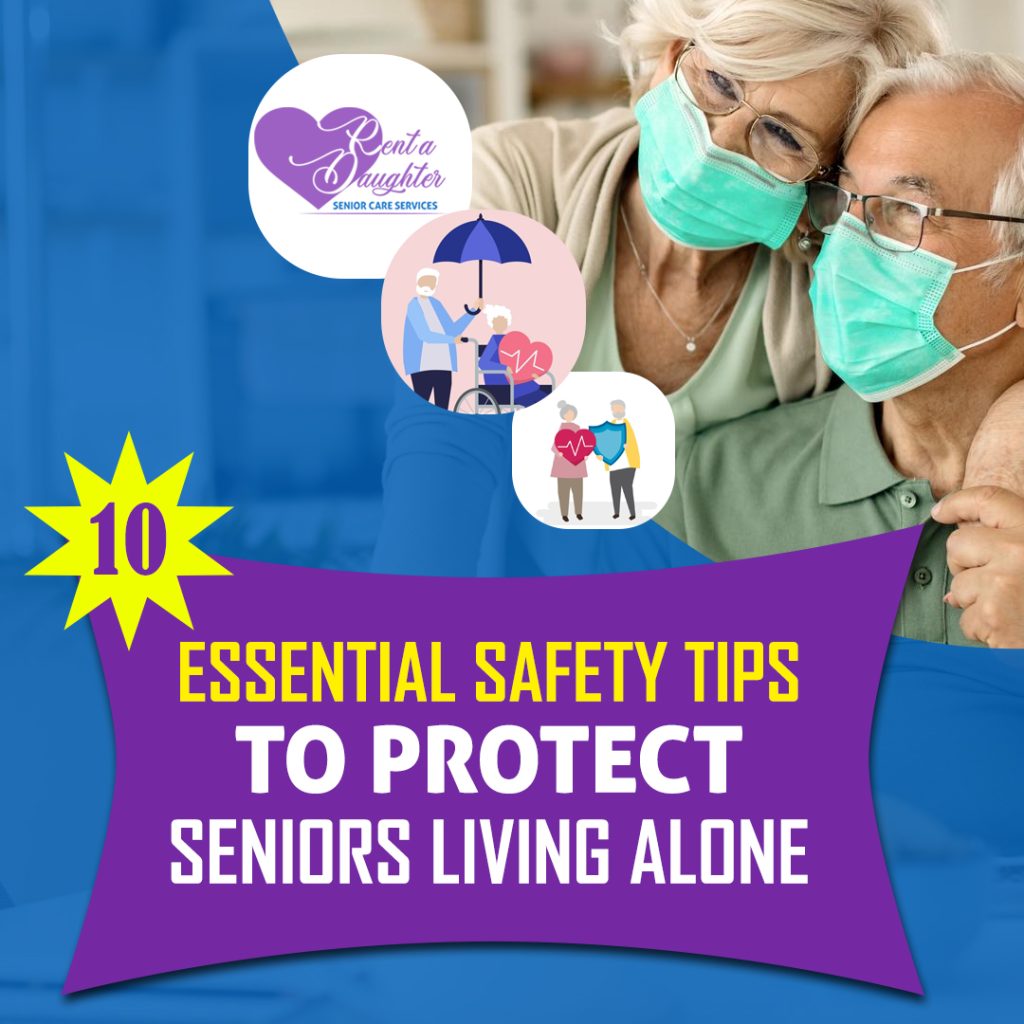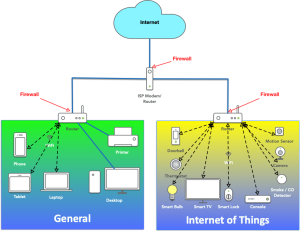Living alone as a senior can feel both freeing and challenging. You want to enjoy your independence, but safety is always on your mind.
What if you could take simple steps today to protect yourself and feel more secure every single day? You’ll discover easy and effective safety tips designed just for you. These practical ideas will help you stay safe, confident, and comfortable in your own home.
Keep reading—your peace of mind is worth it.
Home Security Measures
Ensuring your home feels safe is crucial when living alone. Taking steps to secure your living space can give you peace of mind and protect you from potential threats. Simple changes can make a big difference in how secure you feel every day.
Installing Reliable Locks
Start by checking the locks on all doors and windows. Old or flimsy locks are easy targets for intruders. Consider upgrading to deadbolt locks, which provide stronger protection.
Make sure every entry point has a sturdy lock. Don’t forget about sliding doors—special locks or security bars work well there. If you ever lose your keys, change the locks right away to keep your home safe.
Using Security Cameras
Security cameras let you watch your home from anywhere. Many models connect to your phone, so you can check in at any time. This is especially useful if you’re worried about strangers or want to monitor deliveries.
Choose cameras with good night vision and motion detection. Some cameras send alerts when they sense movement, so you can react quickly. Placing cameras near main entrances and blind spots covers the most vulnerable areas.
Motion Sensor Lighting
Motion sensor lights turn on automatically when they detect movement outside your home. This sudden light can scare off potential intruders. It also helps you see clearly when arriving home at night.
Position these lights near doors, walkways, and dark corners. Make sure they are bright enough to illuminate the area but not so glaring that they disturb your neighbors. Have you checked your outdoor lighting recently to ensure it’s doing its job?
Emergency Preparedness
Emergency preparedness is vital for seniors living alone. It helps them act fast during unexpected situations. Being ready reduces stress and improves safety. Simple steps can make a big difference in emergencies.
Setting Up Medical Alerts
Medical alerts provide quick help in case of falls or health issues. Many devices work with a button press to call emergency services. Some alert systems include fall detection automatically. Choose a device that fits daily life and budget. Keep the device close, like on a wrist or necklace. Test the alert system regularly to ensure it works well.
Creating An Emergency Contact List
Keep a list of important phone numbers visible and easy to reach. Include family members, neighbors, doctors, and emergency services. Use large, clear print for easy reading. Store the list in several places: near the phone, on the fridge, and in a wallet. Update the list every few months to keep it current. Share the list with trusted friends or neighbors for extra support.
Planning Escape Routes
Know all exits in the home for quick evacuation. Plan at least two escape routes from every room. Keep hallways and doors clear of clutter. Practice the escape plan regularly to build confidence. Use nightlights in hallways to find exits in the dark. Inform neighbors about the plan so they can assist if needed.
Daily Safety Practices
Living alone can be empowering for seniors. Yet, it requires some daily safety practices. These habits ensure a secure and comfortable environment.
Safe Cooking Tips
Cooking should be both fun and safe. Use appliances with auto shut-off features. Keep flammable items away from the stove. Install smoke detectors in the kitchen. Consider using a timer for reminders. Keep a fire extinguisher nearby for emergencies.
Preventing Falls And Injuries
Falls are a common risk for seniors. Clear clutter from walkways. Use non-slip mats in the bathroom. Install grab bars in the shower and near the toilet. Ensure good lighting in all rooms. Wear shoes with non-slip soles inside the house.
Managing Medication
Proper medication management is crucial. Use a pill organizer to avoid confusion. Set alarms for medication times. Keep a list of all medications and dosages. Regularly review medications with a healthcare provider. Store medications in a safe, dry place.

Credit: rentadaughter.org
Technology For Safety
Technology can be a powerful ally in keeping seniors safe while living alone. It offers practical solutions that boost security and provide peace of mind. With a little setup, your home can become smarter and more responsive to your needs.
Using Smart Home Devices
Smart home devices can help you control your environment easily. Smart lights, for instance, can be programmed to turn on and off automatically, reducing the risk of trips and falls in the dark.
Security cameras and smart locks add an extra layer of protection by letting you monitor your home remotely. Imagine being able to check who’s at the door without getting up—this convenience can also prevent unwanted visitors.
Voice assistants like Alexa or Google Home can help you call for help hands-free. Have you tried asking your device to set reminders for medication or appointments? It can simplify daily routines and keep you on track.
Apps For Seniors
There are many apps designed specifically with seniors in mind. Emergency alert apps can notify family or emergency services instantly if you need help.
Some apps offer medication management with reminders and tracking, reducing the chance of missed doses. Others provide easy communication tools so you can stay connected with loved ones without hassle.
Think about the apps you already use—could adding one more make your day safer and more organized? Trying a few won’t cost much and could make a big difference.
Wearable Safety Gadgets
Wearable devices like smartwatches or pendants can track your location and vital signs. They often come with emergency buttons you can press if you fall or feel unwell.
Some gadgets detect falls automatically and alert caregivers immediately. This feature is especially useful if you live alone and worry about what might happen if you can’t reach your phone.
Choosing a device that fits your lifestyle and comfort is important—would you prefer a discreet watch or a pendant you can wear all day? Trying different options helps you find what works best for your safety.
Social Connections
Staying socially connected is vital for seniors living alone. It helps you feel supported and reduces feelings of loneliness. Building a network of regular contacts can make a big difference in your daily safety and emotional well-being.
Regular Check-ins
Having someone check on you regularly creates a safety net. This could be a family member, friend, or caregiver who calls or visits at set times. You might set up a daily phone call or video chat to share how you’re doing and discuss any concerns.
Think about who in your circle could easily fit this role. Even neighbors or community volunteers often offer check-in services. Would you feel more secure knowing someone is just a call away?
Community Resources
Many communities offer programs designed to support seniors living alone. These might include senior centers, meal delivery services, or emergency response systems. Using these resources can keep you engaged and provide extra layers of safety.
Contact your local council or senior services office to find options near you. Signing up for a personal emergency response system, for example, can provide peace of mind if you need help fast. Which services are available in your area that you haven’t explored yet?
Engaging With Neighbors
Building friendly relationships with neighbors is one of the simplest safety measures. A quick hello or a chat over the fence can turn neighbors into trusted allies. They can notice if something seems off and step in when needed.
Try inviting a neighbor for a cup of tea or offering to help with small tasks. These small gestures can grow into meaningful connections. Who lives nearby that you could start talking to today?

Credit: seniorhealthcareteam.com

Credit: www.youtube.com
Frequently Asked Questions
How Can Seniors Ensure Home Safety When Living Alone?
Seniors should install smoke detectors, secure doors and windows, and remove trip hazards. Using well-lit areas and emergency alert systems enhances safety. Regularly checking appliances and having a phone nearby also helps in emergencies.
What Are Essential Emergency Preparedness Tips For Seniors?
Seniors should keep a list of emergency contacts visible. Preparing an emergency kit with water, food, and medications is vital. Knowing evacuation routes and having a communication plan ensures quick response during crises.
How Can Seniors Prevent Falls Inside Their Homes?
Removing loose rugs, clutter, and ensuring good lighting reduces fall risk. Installing grab bars in bathrooms and using non-slip mats help. Wearing proper footwear and keeping frequently used items within reach also prevent falls.
Why Is Regular Communication Important For Seniors Living Alone?
Regular check-ins reduce feelings of isolation and ensure timely help if needed. Staying connected with family, friends, or neighbors promotes mental health. Using technology like video calls and emergency alert devices enhances safety and well-being.
Conclusion
Seniors living alone can stay safe with small, smart steps. Keep your home secure and check locks often. Use simple tools like emergency buttons or phones nearby. Stay connected with family or friends every day. Trust your instincts and ask for help if needed.
Safety is about being prepared and aware. Small actions build confidence and peace of mind. Living alone can be safe and comfortable. Take care, stay alert, and enjoy independence.







